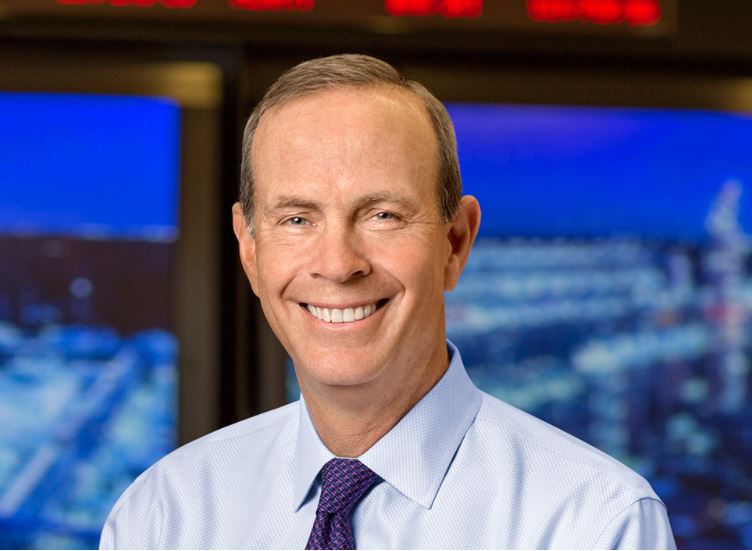Even as the fossil fuel industry rethinks how to limit its carbon output and support a push for cleaner energy alternatives, Chevron Corp. CEO Michael Wirth told attendees of the Reuters Next virtual forum earlier this week that he is optimistic that global population growth will sustain demand for fossil fuels through the coming decades.
Following a year of dramatic contraction in oil demand, 2021 will be the “beginning of the healing process” for economies and the oil industry as countries administer the coronavirus vaccine more widely, provide financial stimulus, and return to normal activities, Wirth explains.
While the pandemic created short-term panic and an oil supply glut in April — sending West Texas Intermediate Crude to negative-$40 a barrel — global market fundamentals for fossil fuels remain largely unchanged, Wirth says. More people — 9 billion on the planet by 2040 — and an expanding global middle class will continue to drive growth in energy consumption for years to come.
Oil, he foresees, will play a familiar role. “The percentage [of energy] supplied by our industry is likely to remain somewhat similar to what it’s been historically,” Wirth says. “It’s difficult in a market that continues to grow for those numbers to change as dramatically as some people would suggest.”
Addressing a lower-carbon future
Wirth was asked that given Chevron’s clear commitment to fossil fuels, how will the company address public and investor scrutiny of oil companies and calls for greater accountability for its carbon footprint?
For one, Chevron supports the 2015 Paris Agreement and accepts that the world’s energy system is moving toward a lower-carbon model over time, Wirth notes. “We intend to be a part of that, and we intend to be successful in that.”

On the ground, Wirth says Chevron will focus resources on climate initiatives in three areas: i) reducing the carbon output of its current business, with a set of targets that nearly every Chevron employee is incentivized to meet; ii) integrating renewables and offsets into its business to further reduce carbon impact, including activities like capturing methane from dairy farms; and iii) investing in technology to make new contributions to energy, including processes for carbon capture and storage.
“These are the kind of things that companies in our industry currently do and can find ways to do bigger and more economically,” Wirth adds.
He pointed to hydrogen and geothermal technologies as promising, and said Chevron supports emerging alternatives through investments made by its venture capital arm, Chevron Technology Ventures. As for near-term threats from technologies that could replace oil, “a big threat to oil is still fairly hard to find,” Wirth says, conceding that the advent of electric cars and the shift to electric in light-duty transportation have shifted oil demand.
Other sectors are much harder to de-carbonize, including heavy-duty transportation, long-haul transportation, industrial uses, shipping, aviation, and petrochemicals, he notes. “Three-quarters of the demand for a barrel of oil goes into these sectors, not into light-duty transport.”
New green demands, familiar business model
Chevron believes it can balance the demands of fulfilling future oil demand and the imperative to reduce carbon emissions in a way that will ultimately reward investors, Wirth says, adding that today’s typical Chevron shareholder will come along for the ride. “I think our investors will be many of the same institutions that we see today,” Wirth says. “They are looking for returns… that’s a primary intent.”
In addition, long-term performance will continue to influence investors in the sector, citing big oil’s stewardship of capital and the oversupply it has created as shareholders’ biggest concern, he explains. Wirth also promised that the company would continue to take a disciplined approach to investing for growth, while acknowledging that it “is not without its shortcomings in that area.”
Wirth wasn’t specific about how Chevron would grow, nor did he say if he favored any of the three ways a fossil fuel company gets new resources — exploration, more efficient production, or acquisitions. However, he did add that more M&A is coming for the industry, especially in the crowded U.S. market. “We have more companies than is logical to develop the resource, and we see there’s too much overhead and cost in the industry,” Wirth says. “I think you will see some further consolidation. Whether or not we’re one of the participants in that would depend on the specific circumstances.”
Chevron will be operating under a new U.S. presidential administration starting January 20, one which is likely to prioritize green initiatives over de-regulation while also backing investment in new businesses and jobs in alternative energy. Wirth countered that in the company’s 140-plus-year history it has worked with plenty of administrations from both parties to shape what it deems sensible regulation designed to support a strong economy and job creation.
“I expect us to be engaged constructively and find common ground” with the Biden administration, Wirth says. “We support the aspirations for a lower-carbon society and we’re working in that direction.”







